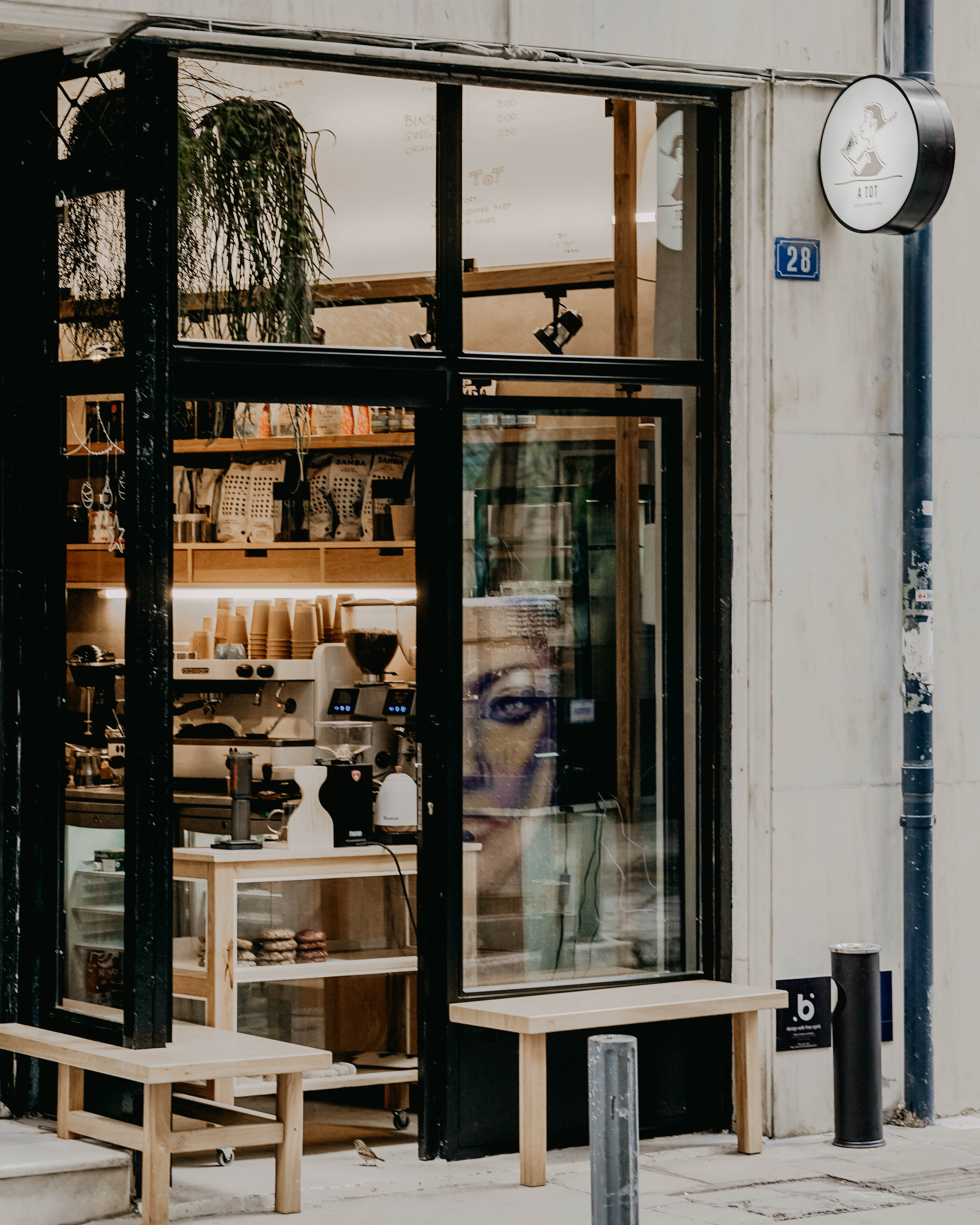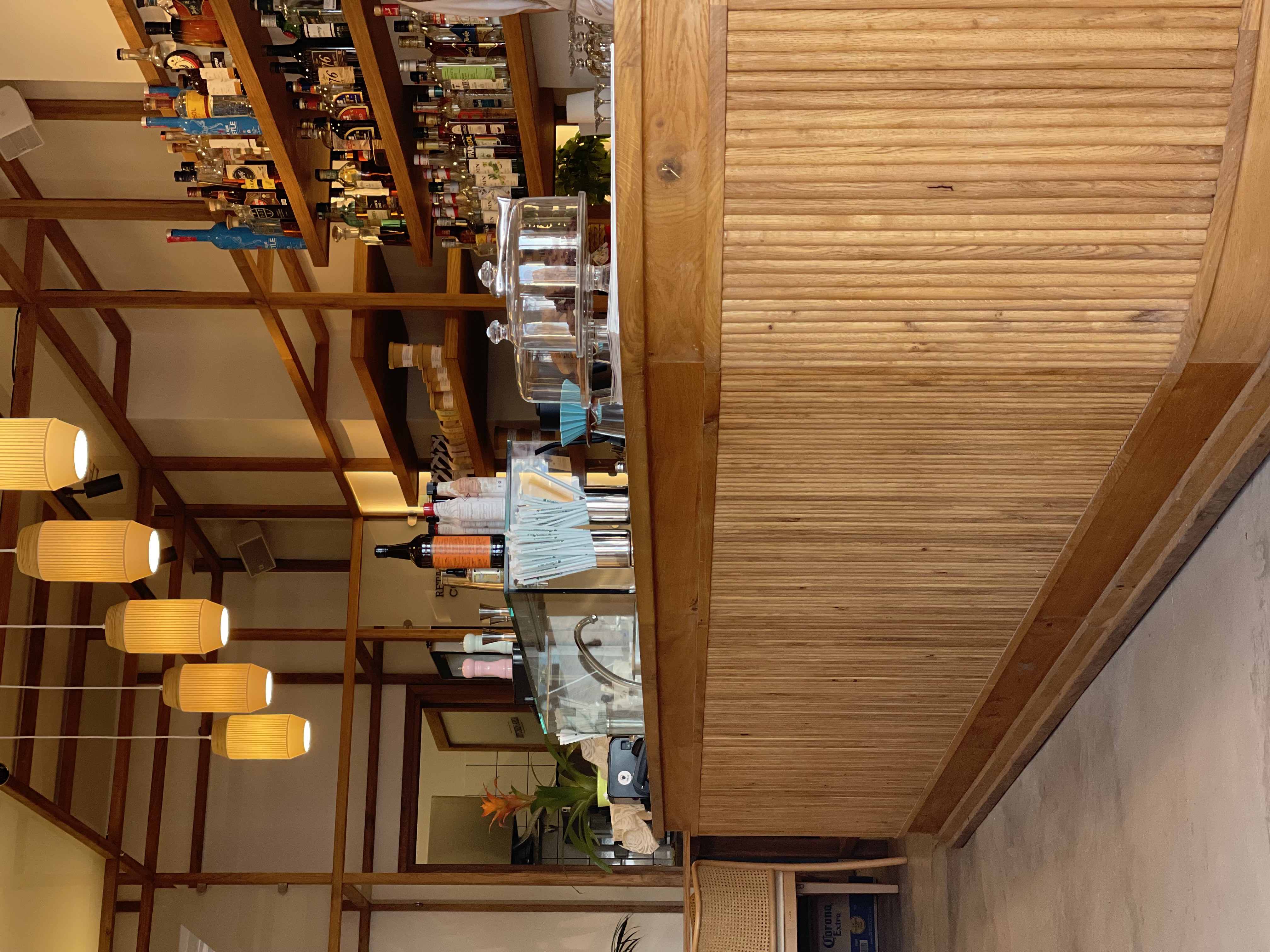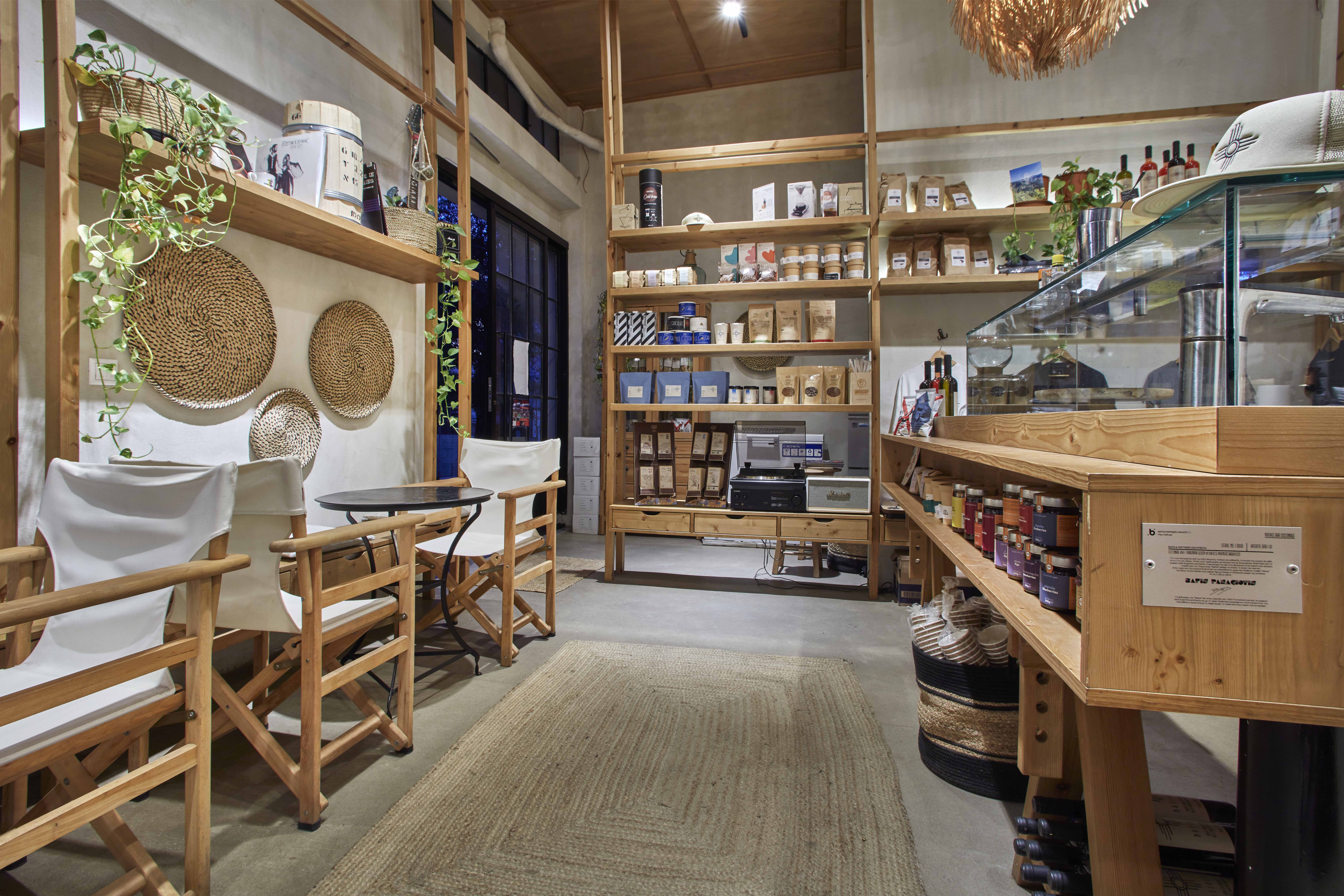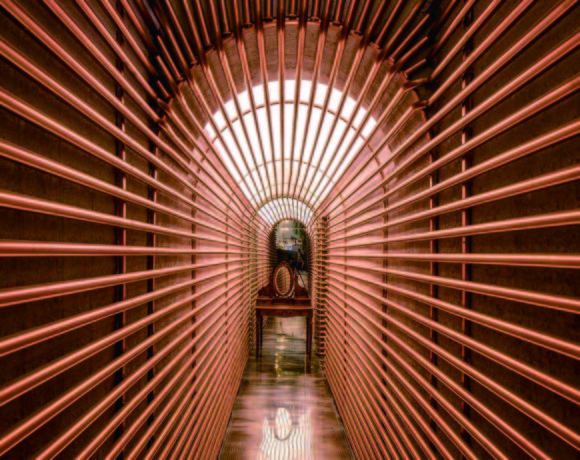A free spirit is someone who is open-minded, creative, and expressive. They are often seen as being unique and different from others. A free spirit enjoys exploring new things and is always looking for ways to express themselves. Expressing the free spirit philosophy in design is about creating spaces that present ideas without constraints. And this is what Bafis & Partners Architects do. Bafis & Partners Architects has been operating in Greece continuously since 1978, designing with fresh ideas and bringing forward the complexity of architectural intelligence. The company is a representative of the new generation of Athenian designers, with a deep understanding of the city’s character and how best to utilize its resources. The team at Bafis Designs believes in approaching each project with a free spirit, working collaboratively to create spaces that are both successful and beautiful. This philosophy has led to the creation of project types ranging from private residences and coffee shops to showrooms and hotels, both in Greece and abroad. I recently had the pleasure of meeting Panagiotis Bafis, the brain behind the designs, to discuss the company philosophy and his vision.

Being a Free Designer
I met Panagiotis in September during the Athens Coffee Festival, where he was a keynote speaker. His Masterclass, Ergonomic design for baristas, was one of the main reasons I wanted to interview him. I was eager to learn more about his design philosophy and how it could be applied to create successful coffee shops. From a young age, Panagiotis was influenced by his father, who was an architect. He would design cars and buildings and take note of the architecture, culture, and food of different places he visited, “I carried a notebook and a pencil everywhere I went. The architecture of places helps me understand their history and makes me feel part of it. That’s where my motivation comes from, the fact that I have something to say to the audience. I wanted to present a different, leaner, human-centered approach to space.”
The motto of Bafis & Partners Architects is to design with free spirit. But, what does it mean for a designer to feel free? “It means having the courage to express your ideas without any constraints,” Panagiotis says. “It’s about being able to say no to things that don’t inspire you. My advice to all young designers is to try and find their own voice. When you do that, people will start listening to you. I know it’s hard to turn down work, but it’s important to stay true to your ideas and beliefs.” In a way, this applies to many aspects of life, not just design. It’s important to be able to express yourself freely and be true to who you are. It is hard to find the motivation to do things that you don’t believe in, “The only way to be successful is to find what you’re passionate about and do that. You have to enjoy the process, not just the result.”
This freedom of spirit is loudly expressed in Bafis & Partners Architects’s new project, Natives. Natives is a specialty coffee shop franchise that is designed to respect nature and the product by creating dining areas that express freedom, cleanliness and native design. I visited the shop in Athens and was impressed by the use of wood, which creates a natural and warm environment. I actually wrote a large part of this article while enjoying a cup of coffee at Natives. The experience was fantastic, and I felt comfortable and free to work. This is a testament to the success of the design. The furniture is designed to be ergonomic and comfortable, with a focus on the customer experience. Aside from the exceptional coffee, the shop offers a select range of organic teas, wine, herbs, dairy-free milk, preserves and healthy snacks, alongside brewing accessories.
The Three Steps to Success

Panagiotis explains to me that according to him, there are three elements to consider when designing spaces such as coffee shops. He calls them the three steps to success, “First you eat with your eyes, then with your mouth and finally with your soul.” This means that first and foremost, the space must be designed to appeal to the senses. Second, the product must be of excellent quality. And third, the people who work in the space must create a pleasant and welcoming atmosphere. “For me, the design of a space must always be simple, without unnecessary decorative details. We live in an age where everything is excessive, forgetting the human factor. There is this tendency to create images just to attract attention. I think we are going through a modern baroque era where we create spaces with materials that degrade over time and don’t allow for duration and substance. We have to think beyond that, and create spaces that are 19 beautiful, functional, and able to stand the test of time,” he points out. From concept to construction, the whole process can take months. The first step is to understand the client’s needs and wants. Then, the team does a survey of the area to see what already exists and how they can link elements from the past with the present. They also look at the space to see how they can best utilize it. “A design that respects the space, also respects the customer. We always think about how the customer will feel in the space. We want them to feel comfortable and at ease.”
Ideas and Solutions for Ergonomic Spaces
One of the things that stands out Bafis & Partners Architects projects is their focus on ergonomics. They design spaces that are not only aesthetically pleasing, but also functional and comfortable, not just for the customer but also for the people who work there. Functionality translates to flexibility, which is a very important element to have when working behind a bar. In specialty coffee shops, the focus is on coffee itself as a premium product. This means that equipment like additional grinders, brew bar areas, additional automatic washing systems and filters is needed to maintain quality. The barista needs to be able to move around freely and have all the tools they need at their disposal.

Panagiotis emphasizes that a coffee-centric philosophy demands that the production area is designed in such a way that the workflow is highly organized. “Specializing in coffee, in addition to knowledge, requires a great financial investment. The shop needs to have basic amenities such as good quality power outlets for each machine separately. For a specialty coffee shop, we also need to have sockets for more grinders. Additionally, water supply and drainage facilities are needed for each espresso machine, as well as for any other machine that we may need, e.g., ice machine, automatic washing system, etc. In Greece, according to health regulations, the coffee shop needs to have at least one commercial sink. The production area must facilitate all these needs in order to be able to function properly. We aim to respect the parameters of both space design and functionality,” he says.
Panagiotis and his team take into account all these elements and more when they design a coffee bar area. Their ideas and solutions are human-centric, as they know that the barista is the heart of the coffee shop. Panagiotis, inspired by Leonardo da Vinci’s Vitruvian man and the proportions of the human body, has created an ergonomic space where the barista can move around freely and have all the tools they need at their disposal, “In order to set up a store correctly, you need to know it from the inside out. You have to always build on its operating system and then extend it to its exterior. Based on the analysis of the human body and the Vitruvian Man, I focus on the distances a barista should have from their tools, and the overall production time.”
In Leonardo da Vinci’s Vitruvian Man drawing, a circle and a square are inscribed in a man. This drawing is based on the proportions of the human body and how it relates to space. If we stretch out our hands and look at ourselves from a bird’s eye view, we create a circle. This circle fits our whole body plus the distance of our stretch. Whenever we count one concentric circle at a distance of 50-80 points from ourselves, we have the perfect distances for our functionality. Among these circles, if they are divided into quadrants, we have the so-called triangles. These are the movements of our hands. Panagiotis applies this theory behind every coffee bar and turns the Vitruvian Man into a Vitruvian Barista, “These triangles show us how much space a barista needs. Then we organize the machines and tools around the barista according to the frequency of their use. In Greece, baristas prtepare a lot of cold coffees as well, so we divide the production into hot and cold. This allows us to have two people behind the bar who will be productive in a small space at the same time,” he says.

Evidently, it’s impossible to cover the needs of each member of the staff on an individual level, as each barista has their own way of working. However, the application of the Vitruvian Man to a coffee bar is an effective way of minimizing errors and focusing on the quality of the product. Beyond functionality, the space behind the bar must also be aesthetic and most importantly, clean. Keeping the coffee bar clean does not only mean avoiding dirt and spills, it also means having an organized and efficient space. This can be achieved by decluttering the area and keeping only the essential tools and products within reach. Based on this philosophy, Bafis & Partners Architects started considering the addition of large cupboards behind the main bar. “These cupboards may serve as storage spaces for all the non-essential items and therefore declutter the area. They also offer the freedom to “hide” objects from customers’ sight. This way, the coffee shop appears more organized and tidy, as customers would only see the items that are being used. In addition, by decluttering the space behind the bar, baristas are able to focus more on the customers and the product. The cupboards could also be used as the main element of the decoration, as they come in a variety of colors, materials, and finishes. They could be used to add a pop of color to the space or to complement the existing decoration. In either case, they would become the core of the store’s decoration and would serve any function that is needed,” Panagiotis explains.
With ideas and solutions such as these, Bafis & Partners Architects are changing the way we think about coffee shops and their design. They are not only taking into account the functionality of the space, but also the aesthetic and the customer experience. Additionally, by collaborating with clients that share a similar vision, they are able to create spaces that are not only beautiful and practical but also free of constraints of any kind. That is when their free spirit truly comes alive.

Innovating by Design in Greece
Coffee culture in Greece has changed a lot in recent years. Young people are interested in trying different types of coffee and are willing to pay more for a higher quality product. This has created opportunities for coffee shop owners to be more innovative in their design and offer customers an experience that goes beyond just buying a cup of coffee. Panagiotis fell in love with the culture of specialty coffee as he recognized his own vision in the way these coffee shops were designed. However, he knows the country’s limitations. “In Greece there is a beautiful competition in the field of design. It’s nice to see shops opening one behind the other. Unfortunately, many of these shops are often copies of some stores from abroad and they often have an expiration date. So how do you manage to stand out in a market where every corner has a restaurant or a coffee shop? This is the biggest challenge. Most spaces are also located in buildings that have no architectural character. As such, we need to put more emphasis on design so as to absorb the eye of the viewer to something really beautiful and meaningful,” he explains.
Evidently, each country has its own set of challenges when it comes to design. In Greece, the size of the spaces is often quite small. Legislation also presents challenges as there are many restrictions on what can be done, “ In most western countries, if you want to design something really good, legislation will not create a problem for you as long as you follow the rules. In Greece things are trickier. For example, it is mandatory for the coffee shop owner to provide a toilet for people with mobility issues but the municipality doesn’t always have the infrastructure to support this from an accessibility point of view. So, many coffee shops have toilets for these people but the same people cannot access the coffee shop,” Panagiotis explains. Putting aside the practical challenges, Greece is a country well-known for its hospitality and Athens is the beating heart of it. Every country has its own culture and one can understand a lot by observing how people interact with a new space. Addict Coffee Shop, a specialty coffee shop in Belgrade, Serbia, is one such example. The store was designed by Panagiotis and his team and he thinks the concept will take a while to be understood by the locals. “The knowledge of both craftsmen and customers is more limited there. Nevertheless, we see a lot of potential in the market and with time they will understand what the coffee shop owner is doing.”
On the other hand, when the team brought Natives to Limassol, the people quickly embraced it, “It is a more multicultural country. Same like in Berlin, Athens and other big capitals, it is more feasible for someone to understand something new and different and integrate it into their everyday life,” Panagiotis concludes. As for his own country, he is optimistic about the future of design in Greece. He thinks the culture has already started to change and hopes that the market will return to shops that focus more on the bottom line, “I think we will return to our roots in a more youthful way and we will cherish both products that we had neglected for so many years and an architecture that has supported generations and generations.” This reminds me of his comment about finding our own voices. Greece, like any other country, has a long history, customs and traditions. It has also been through hardships that are reflected in neighborhood buildings and architecture. All these elements add to the country’s unique identity. And in order to connect with this identity and the people, designers need only look around them. As for Bafis & Partners Architects, they have already started to make their mark both in Greece and abroad. The team is currently working on a few projects around Greece that bridge together the worlds of catering and hospitality. We can only wait and see what they come up with next.











NO COMMENT